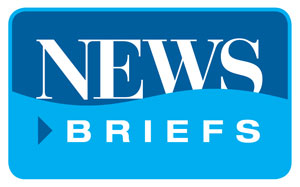A boil-water advisory was lifted Oct. 11 after a major water main break forced the closure of area businesses, offices and schools, including Winthrop University in York County, South Carolina.
WBTV News reports that 125,000 customers were impacted and 30 million gallons of water was lost after the 20-inch water main ruptured at the city’s water treatment facility.
Officials say the age of the pipe was a factor in the break, as the main had been in service since 1949.
See footage of the event on the WBTV News website. The city of Rock Hill alerted customers when water was safe to consume via Twitter:
The water is safe to consume. As more water is used throughout the system, you may notice the water sputtering as air is released from the lines, or a slight discoloration. Follow these tips from the CDC on what to do after a drinking water advisory. pic.twitter.com/5OB9jCCWJy
— Rock Hill SC (@RockHillSCCity) October 11, 2019
New Jersey Governor Announces Plan to Address Lead Contamination Statewide
New Jersey Gov. Phil Murphy has outlined a plan to replace every leaching lead service line in the state and to require every child to be tested for lead poisoning before starting school.
“It is time for us to ensure that New Jerseyans are safe from lead exposure and that generations to come remain safe,” says Murphy, according to WHYY News. “The damage that is done to kids who have exposure — and it’s not treated, it’s not known — is so overwhelmingly obvious.”
The plan would require an estimated 350,000 lead service lines to be replaced at a cost of more than $2 billion. Meanwhile, it would allow for rate increases and require approval from voters for a $500 million bond to help water utilities pay for the replacements.
NJTV News shared a video of the governor’s announcement:
EPA Announces $15 Million in Training Funding for Rural Water Systems
The U.S. Environmental Protection Agency has announced the availability of $15 million in funding for technical assistance and training providers to improve the water quality of small and private water systems that are often located in rural communities across the United States.
“These grants will help ensure that smaller water systems have the knowledge, training and technical assistance needed so they can continue to provide clean drinking water and safeguard public health,” says EPA Administrator Andrew Wheeler.
Funding will be used by nonprofit organizations to provide small public drinking water and wastewater systems with training and technical assistance to achieve and maintain compliance with the Safe Drinking Water Act and the Clean Water Act, improve operational performance and help inform private drinking water well owners about protecting their drinking water supply. Small water systems often face unique financial and operational challenges including aging infrastructure, workforce shortages, increasing costs and declining rate bases.






